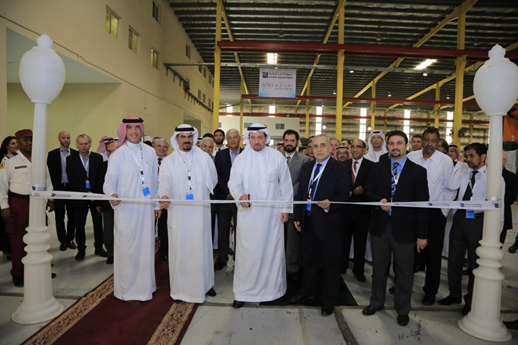An offer of R120 per share in South Africa’s Barloworld Ltd. have been made by a unit of Saudi Arabia’s Zahid Group. A group of companies that includes Falcon holding Ltd. – which Zahid wholly owns – and Entsha Ltd., an entity linked to Barloworld Chief Executive Officer Dominic Sewela has made the offer of R120 per share. The South African company (Barloworld) said in a statement Wednesday. The stock surged as much as 19% in Johannesburg on the Stock Exchange (JSE). The offer won’t be reduced by the 3.10 rand dividend the company declared on 22nd of November, which takes the total so-called “value-unlock” to 123.10 rand per share.
This translates into an 87% premium to Barloworld’s 30-day volume-weighted average price before it told shareholders to exercise caution in trading in April. “Zahid Group is a long-term shareholder of Barloworld and believes in the fundamental strengths of Barloworld,” the company said. The Johannesburg-based firm that is the African distributor of Caterpillar Inc. equipment (a leading manufacturer of construction and mining equipment) will be taken private if the deal goes ahead, it said. Middle Eastern firms have increasingly sought investments in Africa, jockeying for influence with established players like China and France. ACWA Power, a Riyadh-based company, has signed a memorandum of understanding to invest $10 billion in South Africa’s renewable-energy industry over the next decade, while Dubai-based logistics company DP World operates nine ports on the continent.
The Saudi group, a distributor of heavy equipment machinery, started buying Barloworld shares four years ago. Zahid Tractor and Heavy Machinery Co., owns 18.9% of the South African company.
The corporations of the Middle East like Zahid Group are looking to expand their commercial and marketing footprints. Their buying of shares in companies like Barloworld is meant to expand the reach of their products. Zahid Group wants to use the Johannesburg based company as a stepping stone and chain link to promote and distribute the heavy machinery and equipment it manufactures to South Africa’s mining and constructions sectors. Their major goal in this expansion is to turn a profit. Corporations from the Saudi Kingdom, the United Arab Emirates (UAE) and the other Gulf nations are looking to expand and diversify their economies and industries beyond a declining and environmentally harmful oil market. Africa in terms of its raw minerals and rare earths is a key component for unlocking this diversification.
These corporations are ambitious to be rivalling France and China. The continent’s market is as complex as operating the heavy machinery needed to extract its minerals. So, if South Africa is the gateway to the continent’s resources, our corporations and companies are the gate keepers. This is why foreign corporations like Zahid Group acquire the shares in these companies to have a foot hold in directing the resources and the experiences of employees.
Mean while the overall trajectory of the South African economy has received a boost.
The BankservAfrica Economic Transactions Index (BETI), which measures the value of all electronic transactions cleared through BankservAfrica at seasonally adjusted real prices, remained largely unchanged in November. The BETI continued its sideways trend observed since May 2024, following the notable 4.7% increase from October 2023. “The BETI moderated slightly in November to an index level of 136.2, 0.4% down from the revised level of 136.8 in October,” said Shergeran Naidoo, BankservAfrica’s Head of Stakeholder Engagements. The BETI thus remains up by 4.4% compared to last year. Although the underlying momentum in the economy continues to build, the BETI has been treading water since May 2024 but has remained at an elevated level compared to recent history.
“While a number of structural reforms are in the pipeline, coinciding with a cyclical upswing unfolding, it will take time to reflect in improved economic activity from current levels,” says Elize Kruger, Independent Economist.
South Africa’s economy is looking to grow itself if the government can cut through the bureaucracy and regulatory policy (red tape) that keeps companies navigating a complex maze in circles. South Africa can certainly grow in terms of economics if it can liberate itself of the control of directorship and officialdom by the state. In its place jobs can increase and the government in term of lower levels of local municipalities tackle poverty. The BETI is a financial organ that oversees the growth of the economy through its electronic financial transactions. Key to this growth could be the retraction of inflation. The cost of living is receding. Overall, the new growth pattern should be watched carefully and the government of President Cyril Ramaphosa needs to accelerate it.
Pretoria and the country’s respective corporations need to thread carefully when learning how to tame this new growth to their advantage as well as expand it. The government and the companies concerned need to press forward carefully with the reforms that are needed to improve South Africa’s financial and industrial growth. This should be done carefully with social and environmental interests taken into account.
Article written by:
Yacoob Cassim
Journalist at Radio Al Ansaar






